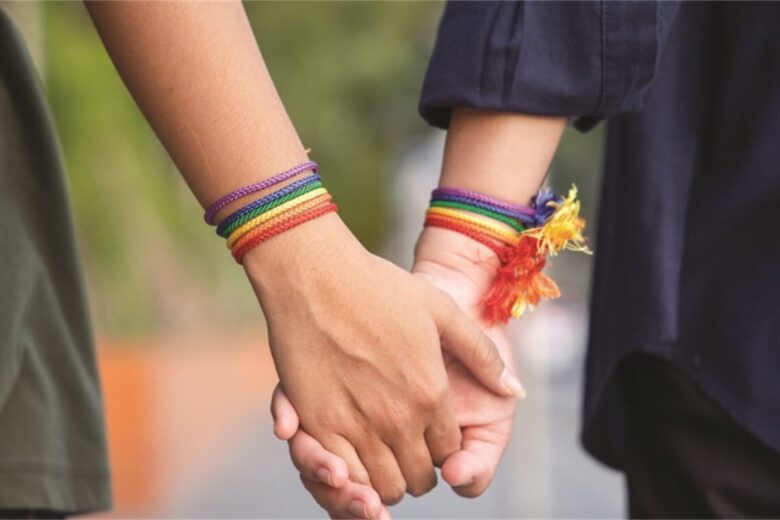Do you know that the mind is not only the source of all suffering but also all happiness? If you are looking for professional tips when coping with relationship issues, part of your therapy advice is to start from the mind. If you need need any gudilenees for your therapy, you can read therapy advice here.
Here is all the advice you need to know.
Key Takeaway
- How mental health has evolved
- Recognizing sexual disparity and accepting it
- Tips for counselors and psychologists regarding sexual disparities
Evolving Mental Health

Source: firsthand.co
The mental health field is continually evolving to accommodate the needs of modern society. Clinical practices have had to follow suit and change their outlook and vocabulary to accommodate every possible client.
Lesbian, Gay, Bisexual, Transgender, and Queer Clients (LGBTQ)
Today’s counseling and therapy have got to be sensitive to identity and cater to the mental health of emerging social groups, including lesbian, gay, or transgender clients.
While these were not part of the counseling focus a decade ago, they are now. Here, we will look at the guidelines or tips when coping with relationship issues.
Psychotherapy for Gay, Lesbian, and Bisexual Clients

These minority groups, while facing typical relationship issues, also have unique problems. Consequently, people in these groups might tend to feel isolated, leading to stress, anxiety, and depression. Thus, calling for psychotherapy.
It is the mandate of the counselor or therapist to guide the client towards good mental health no matter what their sexual orientation is. The Appropriate Therapeutic Response to Sexual Orientation (1998) established a framework for therapists focusing on issues of sexuality.
Affirming Sexual Orientation

Source: pexels.com
In Counseling Lesbian, Gay, Bisexual, Transgender, or Queer ( LGBTQ), the psychologist must recognize and affirm the client’s sexual orientation to create a more positive interaction. You must understand that bisexuality and homosexuality is not mental health condition.
Following this line of thought, you, as the counselor, must also be aware of any stigmas concerning the client. These could be sexual or otherwise and include;
Microaggressions.
Microaggression refers to comments made by the people around an LGBTQ person. These people include co-workers, family, friends, and even strangers.
As a psychologist, you must establish the motive of a person or persons seeking a change in sexual orientation.
Beware of unchecked privilege or bias. Also, check that negative attitudes do not develop by saying something people could misconstrue.
Recognizing Bias and Attitudes’ Effect on the LGBTQ
As a counselor, acknowledge your attitude and knowledge about gay and lesbians. Address the internal biases through self-reflection. This attitude will keep the communication lines open and bring you and the client to a place of empathy.
Stigma

Source: ubykotex.com
Many Gays, bicultural bisexuals, or Lesbians encounter harassment, discrimination, and stigma leading to prejudice. In addition, religious beliefs, ethnicity, and race also add to the discriminatory factors.
You must address the emotional aspects of these stigmas to avoid re-traumatizing your client during therapy. As a psychologist, you must acknowledge how these prejudicial views affect the LGBTQ community.
Treatment Issues and Conversion Therapy
Affirmative Therapy
The American Psychology Association (APA) has adopted the Psychological practice for lesbian, transgender, and gay customers since Feb 19, 2024. The guidelines assist psychologists in the affirmative work for sexual minority group clients.
This affirmative therapy, also fondly known as ‘Come as you are therapy,’ does not try to change a person’s sexual orientation—the practice centers around empathy and acceptance, and coping strategies.
Conversion Therapy

Source: theparliamentmagazine.eu
The Human Rights Campaign and the National Center for Lesbian Rights recommend Conversion Therapy tips when coping with relationship issues for gay, bisexual, transgender, and Lesbian clients.
- It would be best if you rejected identifiers like ‘gay’ or ‘lesbian’ in favor of healthier phrases like ‘same-sex-attraction’ or ‘same-gender-attraction.’
- Refuse to have LGBTQ people label themselves as such.
- Do not use phrases like ‘struggling with homosexual feelings.’
- You shouldn’t view homosexuality as an addiction.
- Do not imply that LGBTQ people must align with societal views
- Do not refer LGBTQ clients to conversion therapists
- Do not refer these LGBTQ clients to ex-gay support groups
- Recognize that family members of these groups could have people who are not legally or biologically related to them as family.
- Psychologists have to strive to understand the problems that gay, lesbian, or bisexual youth and adults have to encounter daily.
- Psychologists must support providing professional education for these sexual minority groups.
- Counselors must aspire to become familiar with the mental health, community resources, and education of LGBTQ people.
FAQS
What is Holistic Therapy?
Holistic therapy is talk therapy that aims at treating a person as a whole with interactions between the mind, body, and environment.
Intersex vs. Transgender; what is the difference?
When people experience a process of change in their gender, they are considered transgender. Intersex people do not have a particular dominant gender system because of their biological characteristics.

